|
Books Should Be Free Loyal Books Free Public Domain Audiobooks & eBook Downloads |
|
|
Books Should Be Free Loyal Books Free Public Domain Audiobooks & eBook Downloads |
|
Top Authors |
|---|
|
Book type:
Sort by:
|
By: Aristotle (384-322) | |
|---|---|
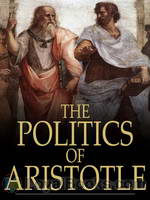 Politics
Politics
The Politics, by the ancient Greek philosopher Aristotle, is one of the most influential texts in political philosophy. In it, Aristotle explores the role that the political community should play in developing the virtue of its citizens. One of his central ideas is that “Man is a political animal,” meaning that people can only become virtuous by active participation in the political community. Aristotle also criticizes his teacher Plato, classifies and evaluates six different types of constitutions and political institutions, and describes his vision of the ideal state... | |
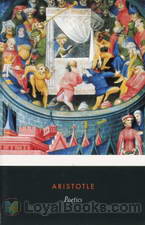 Poetics
Poetics
Aristotle’s Poetics from the 4th century B.C. aims to give a short study of storytelling. It discusses things like unity of plot, reversal of situation, and character in the context of Greek tragedy, comedy and epic poetry. But it still applies today. It is especially popular with screenwriters as seen in many script gurus’ how-to books. | |
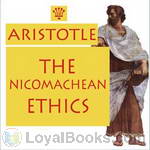 The Nicomachean Ethics
The Nicomachean Ethics
The work consists of ten books, originally separate scrolls, and is understood to be based on notes said to be from his lectures at the Lyceum which were either edited by or dedicated to Aristotle's son, Nicomachus. In many ways this work parallels the similar Eudemian Ethics, which has only eight books, and the two works can be fruitfully compared. Books V, VI, and VII of the Nicomachean Ethics are identical to Books IV, V, and VI of the Eudemian Ethics. Opinions about the relationship between the two works, for example which was written first, and which originally contained the three common books, is divided... | |
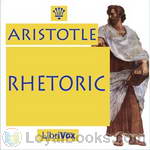 Rhetoric
Rhetoric
The Rhetoric was developed by Aristotle during two periods when he was in Athens, the first between 367 to 347 BCE (when he was seconded to Plato in the Academy), and the second between 335 to 322 BCE (when he was running his own school, the Lyceum). The Rhetoric consists of three books. Book I offers a general overview, presenting the purposes of rhetoric and a working definition; it also offers a detailed discussion of the major contexts and types of rhetoric. Book II discusses in detail the three means of persuasion that an orator must rely on: those grounded in credibility (ethos), in the emotions and psychology of the audience (pathos), and in patterns of reasoning (logos)... | |
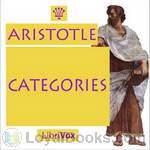 Categories
Categories
Categories is the first of Aristotle's six texts on logic which are collectively known as the Organon. In Categories, Aristotle enumerates all the possible kinds of things that can be the subject or the predicate of a proposition. Aristotle places every object of human apprehension under one of ten categories (known to medieval writers as the praedicamenta). Aristotle intended them to enumerate everything that can be expressed without composition or structure, thus anything that can be either the subject or the predicate of a proposition. The ten categories, or classes, are: Substance, Quantity, Quality, Relation, Place, Time, Position, State, Action and Affection. | |
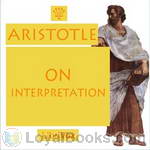 On Interpretation
On Interpretation
Aristotle's On Interpretation (Greek Peri Hermeneias) or De Interpretatione (the Latin title) is the second of Aristotle's six texts on logic which are collectively known as the Organon. On Interpretation is one of the earliest surviving philosophical works in the Western tradition to deal with the relationship between language and logic in a comprehensive, explicit, and formal way. The work begins by analyzing simple categoric propositions, and draws a series of basic conclusions on the routine... | |
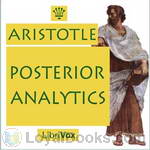 Posterior Analytics
Posterior Analytics
Posterior Analytics is the fourth of Aristotle's six texts on logic which are collectively known as the Organon ("Instrument"). Posterior Analytics deals with demonstration, definition, and scientific knowledge. Demonstration is distinguished as a syllogism productive of scientific knowledge, while Definition is marked as the statement of a thing's nature, a statement of the meaning of the name, or of an equivalent nominal formula. | |
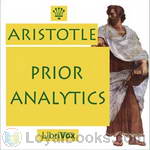 Prior Analytics
Prior Analytics
Prior Analytics is the third of Aristotle's six texts on logic which are collectively known as the Organon ("Instrument"). In Prior Analytics Aristotle conducts a formal study of arguments. In logic an argument is a series of true or false statements which lead to a true or false conclusion. Aristotle identifies valid and invalid forms of arguments called syllogisms. A syllogism is an argument consisting of three sentences: two premises and a conclusion. Of the entire Aristotelian corpus, Aristotle gives priority to the study of his treatises on Logic. | |
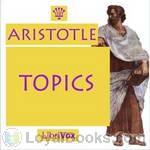 Topics
Topics
The Topics is is the fifth of Aristotle's six texts on logic which are collectively known as the Organon ("Instrument"). The Topics constitutes Aristotle's treatise on the art of dialectic—the invention and discovery of arguments in which the propositions rest upon commonly-held opinions or endoxa. Topoi are "places" from which such arguments can be discovered or invented. In his treatise on the Topics, Aristotle does not explicitly define a topos, though it is "at least primarily a strategy for argument not infrequently justified or explained by a principle." | |
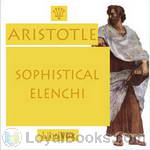 Sophistical Elenchi
Sophistical Elenchi
De Sophisticis Elenchis is the sixth of Aristotle's six texts on logic which are collectively known as the Organon ("Instrument"). In De Sophisticis Elenchis Aristotle identifies 13 falacies. Verbal Fallacies are: Accent or Emphasis; Amphibology; Equivocation; Composition; Division and Figure of Speech. Material Fallacies are: Accident; Affirming the Consequent; Converse Accident; Irrelevant Conclusion; Begging the Question; False Cause and Fallacy of Many Questions. | |
By: Nathaniel Hawthorne (1804-1864) | |
|---|---|
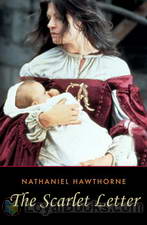 The Scarlet Letter
The Scarlet Letter
A beautiful woman who is punished for the mortal sin of loving a man other than her husband, a cowardly lover, a vengeful husband, a rebellious illegitimate child and the oppressive and patriarchal morality of 17th century Puritanism in Boston. Together these form an unforgettable and thought-provoking glimpse of how much social attitudes have changed over the centuries. Nathaniel Hawthorne was the creator of such beloved works as Twice-Told Tales, A Wonder Book for Boys and Girls, The House of the Seven Gables and spine-chilling tales like Roger Malvin's Burial... | |
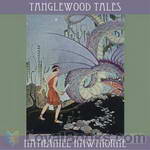 Tanglewood Tales
Tanglewood Tales
A sequel to Nathaniel Hawthorne's earlier volume of Greek mythology interpreted and retold for young people, Tanglewood Tales includes more legends and tales of ancient heroes and monsters. In his earlier book, A Wonder-Book for Girls and Boys, Hawthorne had designed the book to be a book within a book. A young college student keeps a group of young children entertained by retelling Greek myths in a way in which they can easily understand. Nathaniel Hawthorne also wrote a brief introduction to Tanglewood Tales, entitled The Wayside... | |
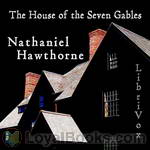 The House of the Seven Gables
The House of the Seven Gables
“The wrongdoing of one generation lives into the successive ones and… becomes a pure and uncontrollable mischief.” Hawthorne’s moral for “The House of the Seven Gables,” taken from the Preface, accurately presages his story. The full weight of the gloomy mansion of the title seems to sit on the fortunes of the Pyncheon family. An ancestor took advantage of the Salem witch trials to wrest away the land whereon the house would be raised… but the land’s owner, about to be executed as a wizard, cursed the Pyncheon family until such time as they should make restitution... | |
 Rappaccini's Daughter
Rappaccini's Daughter
The story is set in Padua in a distant, but unspecified past. From his quarters, Giovanni, a young student of letters, observes Beatrice, the beautiful daughter of Dr. Rappaccini, a scientist working in isolation. Beatrice is confined to the lush and locked gardens filled with poisonous plants by her father. Having fallen in love, Giovanni enters the garden and meets with Beatrice a number of times regardless of the warning of his mentor, Professor Baglioni, that Rappaccini is up to no good and he and his work should be avoided. | |
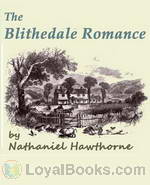 The Blithedale Romance
The Blithedale Romance
The Blithedale Romance is the story of four principal characters who work with -- and sometimes against -- each other on Blithedale, a communal farm antecedent to those that sprang up later in the 1960s, and similar to one on which Hawthorne himself lived in 1841. These communes arose out of the pressures on society and the individual brought by the Industrial Revolution. Some were organized around religious philosophies, some were secular. Among the secularists, the Transcendental movement mentioned in the novel espoused the idea that the individual's intuition, rather than religious dogma, was the true path to spiritual enlightenment... | |
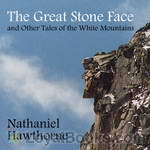 The Great Stone Face and Other Tales of the White Mountains
The Great Stone Face and Other Tales of the White Mountains
A collection of four short stories by Nathaniel Hawthorne, the common theme of which is New Hampshire's White Mountains. Consists of: The Great Stone Face, written in 1850 and revolves around the 'Old Man of the Mountain (Cannon Mtn.) in New Hampshire which sadly collapsed on May 3, 2003; The Ambitious Guest, written in 1835; The Great Carbuncle, written in 1837; and Sketches From Memory, written sometime prior to The Great Carbuncle as will become obvious. | |
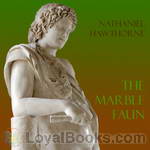 The Marble Faun
The Marble Faun
The Marble Faun is Hawthorne's most unusual romance. Writing on the eve of the American Civil War, Hawthorne set his story in a fantastical Italy. The romance mixes elements of a fable, pastoral, gothic novel, and travel guide. In the spring of 1858, Hawthorne was inspired to write his romance when he saw the Faun of Praxiteles in a Roman sculpture gallery. The theme, characteristic of Hawthorne, is guilt and the Fall of Man. The four main characters are Miriam, a beautiful painter who is compared... | |
 The Great English Short-Story Writers, Volume 1
The Great English Short-Story Writers, Volume 1
| |
 Mosses from an Old Manse and other stories
Mosses from an Old Manse and other stories
| |
 From Twice Told Tales
From Twice Told Tales
| |
 True Stories from History and Biography
True Stories from History and Biography
In writing this ponderous tome, the author's desire has been to describe the eminent characters and remarkable events of our annals, in such a form and style, that the YOUNG might make acquaintance with them of their own accord. For this purpose, while ostensibly relating the adventures of a Chair, he has endeavored to keep a distinct and unbroken thread of authentic history. The Chair is made to pass from one to another of those personages, of whom he thought it most desirable for the young reader to have vivid and familiar ideas, and whose lives and actions would best enable him to give picturesque sketches of the times... | |
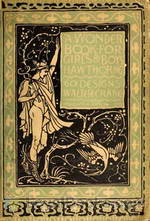 Wonder Book for Girls and Boys
Wonder Book for Girls and Boys
A Yankee student stays at a country house called Tanglewood during a golden New England fall. Also at the house are about a dozen children: younger cousins of the student and their friends of varying ages. The student, as much to amuse himself as to amuse the children, organises games and activities and tells stories. And the stories he tells are wild and fantastic. When his store of fairy tales and folk legends is exhausted he hits on the idea of retelling Greek Myths in his own style.We visit Tanglewood... | |